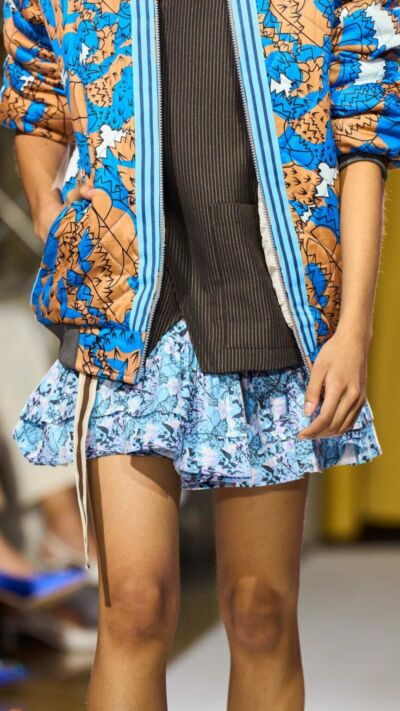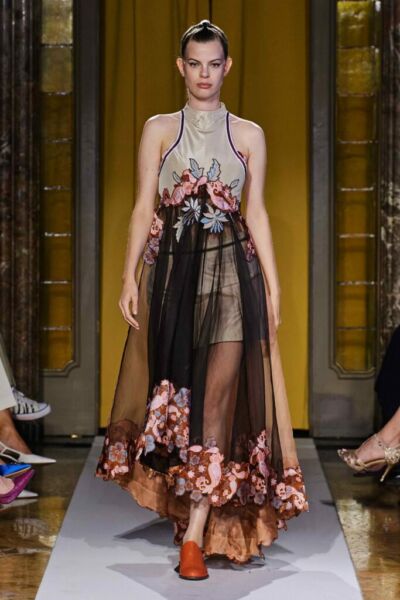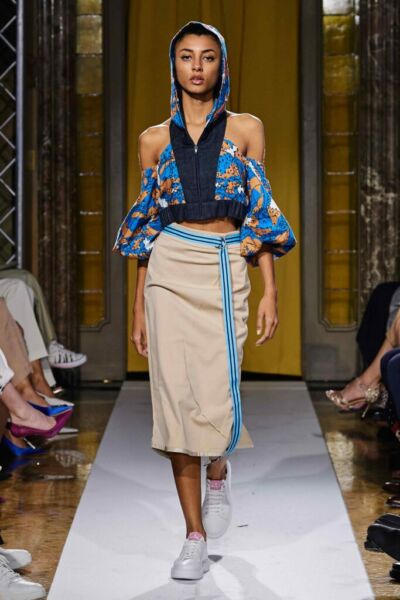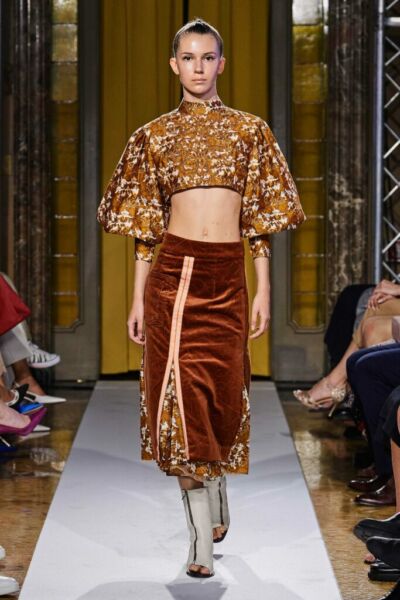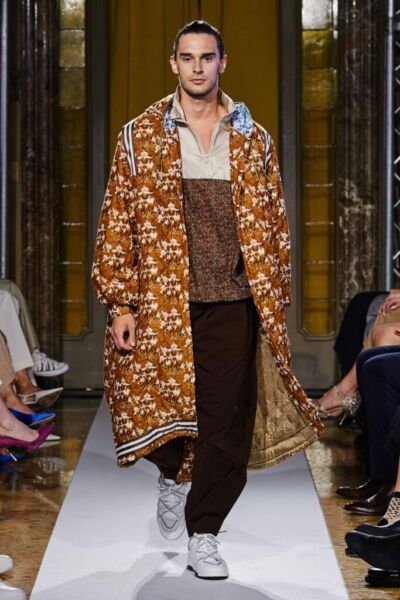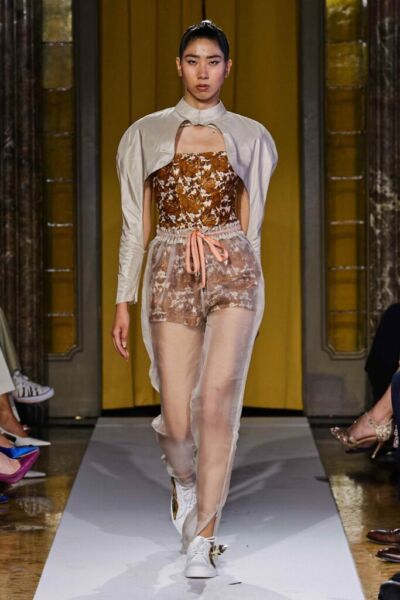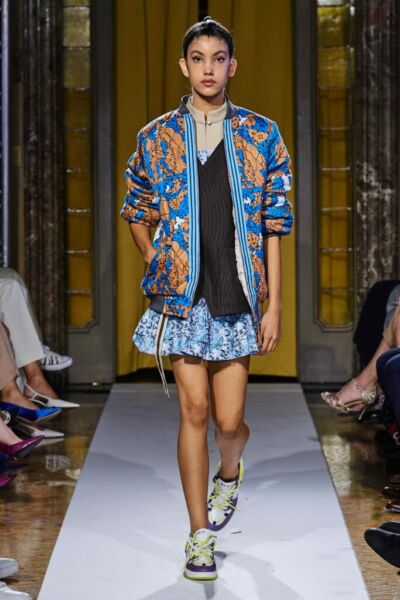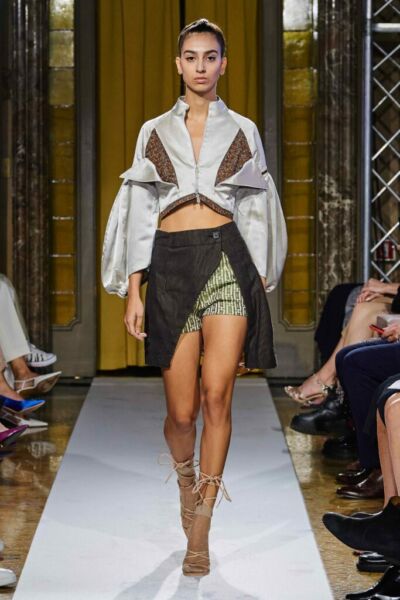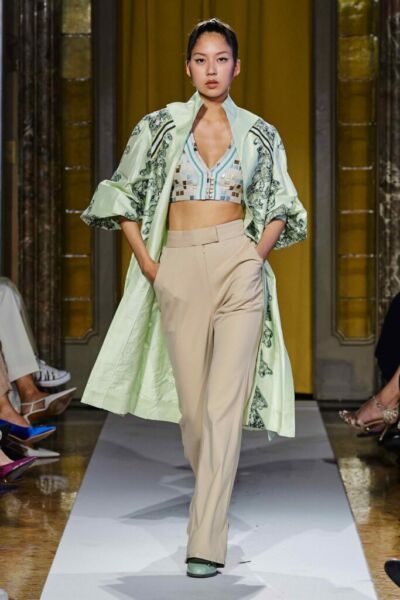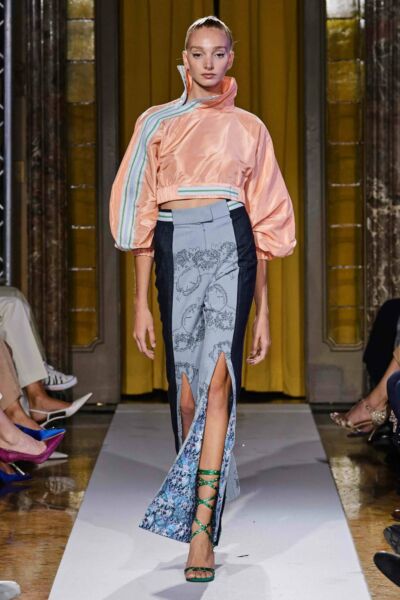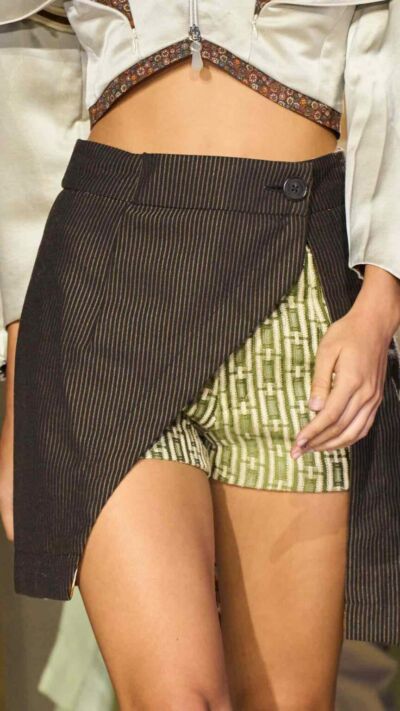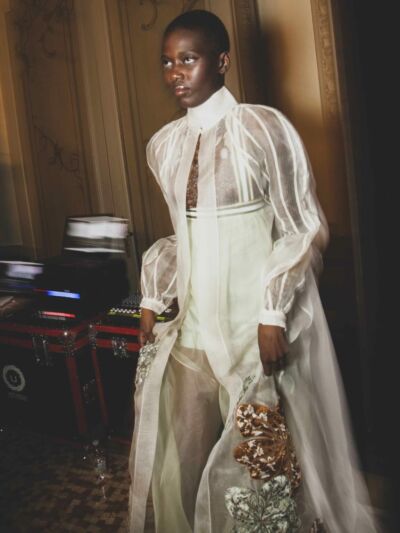JYK is a ready-to-wear women’s clothing label with DNA that takes inspiration from authentic Indonesian traditional heritage and applies the concept of sustainable and ethical fashion. This label is a kaleidoscope of young people’s cultural movements that are bold, full of energy, and provide new innovations and breakthroughs. The label name JYK itself is an abbreviation of Jenny Yohana Kansil as the designer of this label. Jenny is an alumni of several prestigious fashion schools in Italy and London. As an alumni of Istituto Di Moda Burgo, Jenny was trusted to open an Istituto di Moda Burgo in Indonesia. With unique experiences in finance, psychology and fashion, Jenny is also a mother, designer, businesswoman and educator.
Unlike the previous year, this time JYK combines digital processing with the traditional heritage of batik through redesign. JYK label collaborates with batik artisans in creating new batik motifs that appear more contemporary and are believed to be accepted by the international market.
This batik motif was built through images processed from direct durian photos found in a durian plantation in Lubuklinggau, South Sumatra. The exploration of the durian flower which has its own beauty makes it a focus that may not be widely known by the public.
The Spring Summer 2023 collection, entitled ‘Egalitarian’, takes a silhouette from the 1970s, which symbolizes the year of freedom and equality. In addition, these years are also considered the most fashionable decade of all time. This collection of 10 clothing consists of a wide design range from mini skirts to midi skirts, with A-line silhouettes, modern crop tops, high waist silhouettes, flared jeans to floral elegance with collection designs dominated by statement sleeves.
The 1970s style also declared itself that ‘there are no rules in the world of fashion’ which is in line with JYK’s brand DNA that dares to break boundaries, audacious, akin and left field. Traditional batik leaves its natural impression when transformed into sporty designs and colorful collections that without a doubt combine materials from silk taffeta to stretch jersey, heavy wool stripes and light silk organza, and are complemented by sporty ribbon accessories.
Not only that, the spirit of sustainable fashion is also still carried by the JYK label, with this collection using organic materials and leftover batik fabrics used as decorations, appliqués, and knitted with embroidery techniques.
This collection also reaffirms JYK’s consistency with brand DNA that dares to cross boundaries after last year applying batik to the Punk style, and now bringing batik with a sporty style combination.
This is shown through a color mood that is dominated by layered neutral colors such as a combination of dark and light brown, which surprisingly gives a new color that catches the eye. In addition, there are also bright colors such as blue and orange that create a sporty look. This color is balanced by Italian clay tones, touches of pink and green. The variety of colors in this collection is equal and even.
The Inspiration
With the theme ‘Egalitarian’, this collection carries the concept of equality, belief in equal rights, and equal opportunities for every individual.
This idea emerged from various events in the world today, starting from the world’s reaction to the war that hit Russia-Ukraine which throws memories of the 1970s, the year when people protested the Vietnam war with the role of a superpower behind it. In the end, regardless of race, gender, social status and country, we are all the same. We are homo sapiens who face the same problem and feel threatened; starting from the covid pandemic, global warming, reduced supply of resources, poverty, education and empowerment, gender equality, human rights issues, and getting worse with issues related to war and nuclear.
The ‘Egalitarian’ collection then also becomes the need for a sense of peace so that all of us, humans, can coexist to create a better space. We are all created to live freely, and use our freedom to help others with love instead of manipulating them to support that freedom.
And speaking of love and freedom, there is a story from Lubuklinggau where this batik comes from which also carries both spirits. The story is known as the Legend of ‘Silampari Princess’ which reveals equality, empowerment and a strong female figure from Lubuklinggau.
There are various versions of this story, but in this case is the spirit of the figure Silampari Princess who is aware of her power and freedom to have an equal position with men. A person who does not give up easily and is able to make decisions for himself.
That said, Princess Silampari, is the daughter of the couple Selendang Kuning and King Linggau. Her beauty reached the ears of the Prince of Palembang so that he wanted to propose to Princess Silampari to unite Palembang and Lubuklinggau. However, the Princess who has principles and does not give up easily refuses the proposal. His brother, The Prince of Linggau then made a ‘lubuk’, a deep basin in the bottom of the river, for the princess to hide. (Which is later suspected to be the story of the birth of the name Lubuklinggau).
At one time after facing many obstacles in her life, the Princess then asked the gods to be raised to heaven. Since then she disappeared and could not be found again. Princess Silampari is believed to have disappeared in Bukit Sulap, a hill in Lubuklinggau that always looks different or sometimes disappears in appearance. The disappearance of the princess prevented an unwanted war from occurring.
Therefore, the city of Lubuklinggau is also often known as Silampari Land, and the same name is also used for the airport, namely Silampari Airport. What does Silampari mean? Silam means ‘lost’, and Pari means ‘princess’, which when combined becomes ‘the lost princess’.
The story of Silampari Princess is a representation of a strong woman who also symbolizes equality where women are able to make their own decisions to determine their fate in the midst of pressure from the two loves that surround them, from family and from the man who loves her. In addition, this story also shows how this equality carries a message of no more conflict, because all parties -women and men-support each other, with love.
